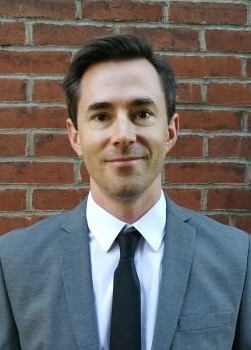Fall 2024 Events
Reading Sylvia Wynter's Black Metamorphosis
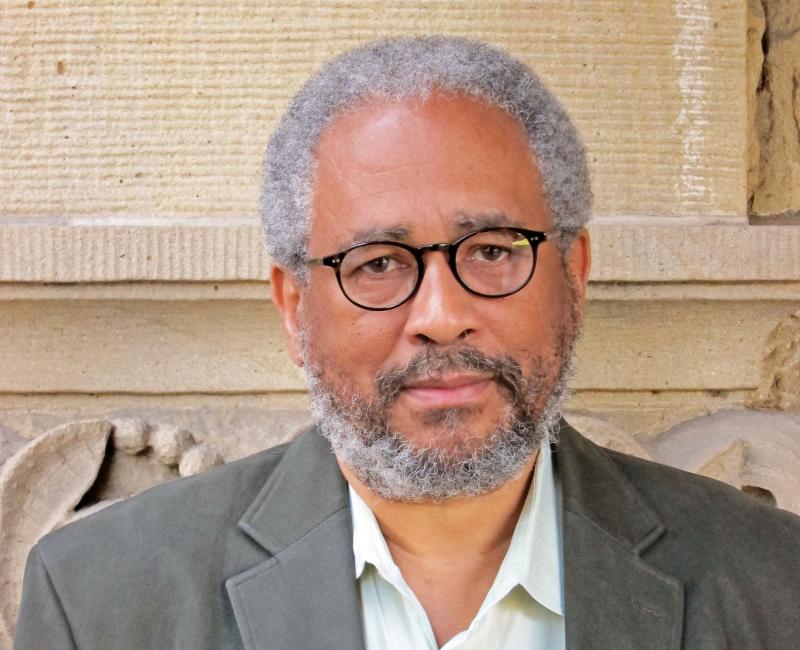 Anthony Bogues, “Black Metamorphosis and the Revision of Critical Theory”
Anthony Bogues, “Black Metamorphosis and the Revision of Critical Theory”
Friday, Nov. 8, 2024, 2 pm, Maxwell Hall 122 (virtual lecture)
Abstract: I will address the ways in which Wynter’s unpublished work Black Metamorphosis reworks Critical Theory by positing a theory of black radical cultural politics. I will argue that Wynter’s posing of radical politics linked to issues of culture and the symbolic order broadens our conceptions of politics. In her conception radical politics becomes the overthrow of both a state and the epistemic grounds of state formation. In such a formulation within the Black radical tradition, revolution and revelation operate in tandem to make the new.
Anthony Bogues is a writer, scholar, curator, and currently the Asa Messer Professor of Humanities and Africana Studies as well as the Director of the Center for the Study of Slavery and Justice at Brown University. Professor Bogues’s major research and writing interests are intellectual, literary and cultural history, radical political thought, political theory, critical theory, Caribbean and African politics as well as Haitian, Caribbean, and African Art. He is the author of Caliban’s Freedom: The Early Political Thought of C.L.R. James (1997); Black Heretics and Black Prophets: Radical Political Intellectuals (2003); and Empire of Liberty: Power, Freedom and Desire (2010). Besides his editorial work, he has curated and co-curated shows in the United States, South Africa, and the Caribbean and published numerous essays and articles on the history of criticism, critical theory, political thought, political philosophy, intellectual and cultural history as well as Haitian Art.
Event CANCELED
Professor McKittrick needed to cancel her appearance for personal reasons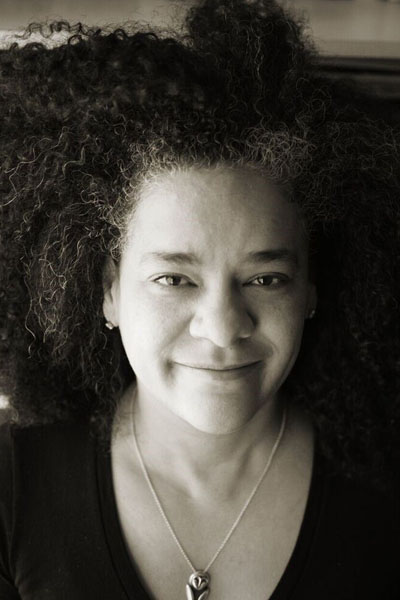
Katherine McKittrick, “Rebellion, Invention, Groove”
Friday, Nov. 15, 2024, 2 pm, Maxwell Hall 122 (virtual lecture)
Abstract: This talk examines Black musical aesthetics that not only emerge within and against long-standing antiblack practices, but which are heard and listened to across and in excess of the positivist working of antiblack logics. With a focus on “waveforms”—beats, rhythms, acoustics, and frequencies that intersect with racial economies and histories in lyric content—the lecture draws upon a wide range of passages from Sylvia Wynter’s manuscript “Black Metamorphosis,” with particular attention to Wynter’s section and consideration of “Jonkunnu as Cultural Ritual.” (Interested participants are encouraged to read the section of Black Metamorphosis under discussion (manuscript: 84-100) [PDF: 86-111].)
Katherine McKittrick is a leader in Black feminist thought and Black geographies, focusing on the creative, embodied, and intellectual spaces of the African diaspora. Across her work, she draws attention to how Black creative texts are expressive of anti-colonial politics. These themes are addressed in her books Demonic Grounds: Black Women and the Cartographies of Struggle (2006) and Dear Science and Other Stories (2021), as well as in her edited collection and contributions to the book Sylvia Wynter: On Being Human as Praxis (2013). By conceptualizing Black diasporic practices as spatialized acts of survival, she introduces novel critical-creative methodological approaches to Atlantic history. Professor McKittrick is Canada Research Chair in Black Studies and Professor of Black Studies and Gender Studies at Queen’s University.
These talks are made possible with the generous support of the Arts + Humanities Council and the departments of American Studies, Spanish and Portuguese, and Comparative Literature.
New Book Presentation
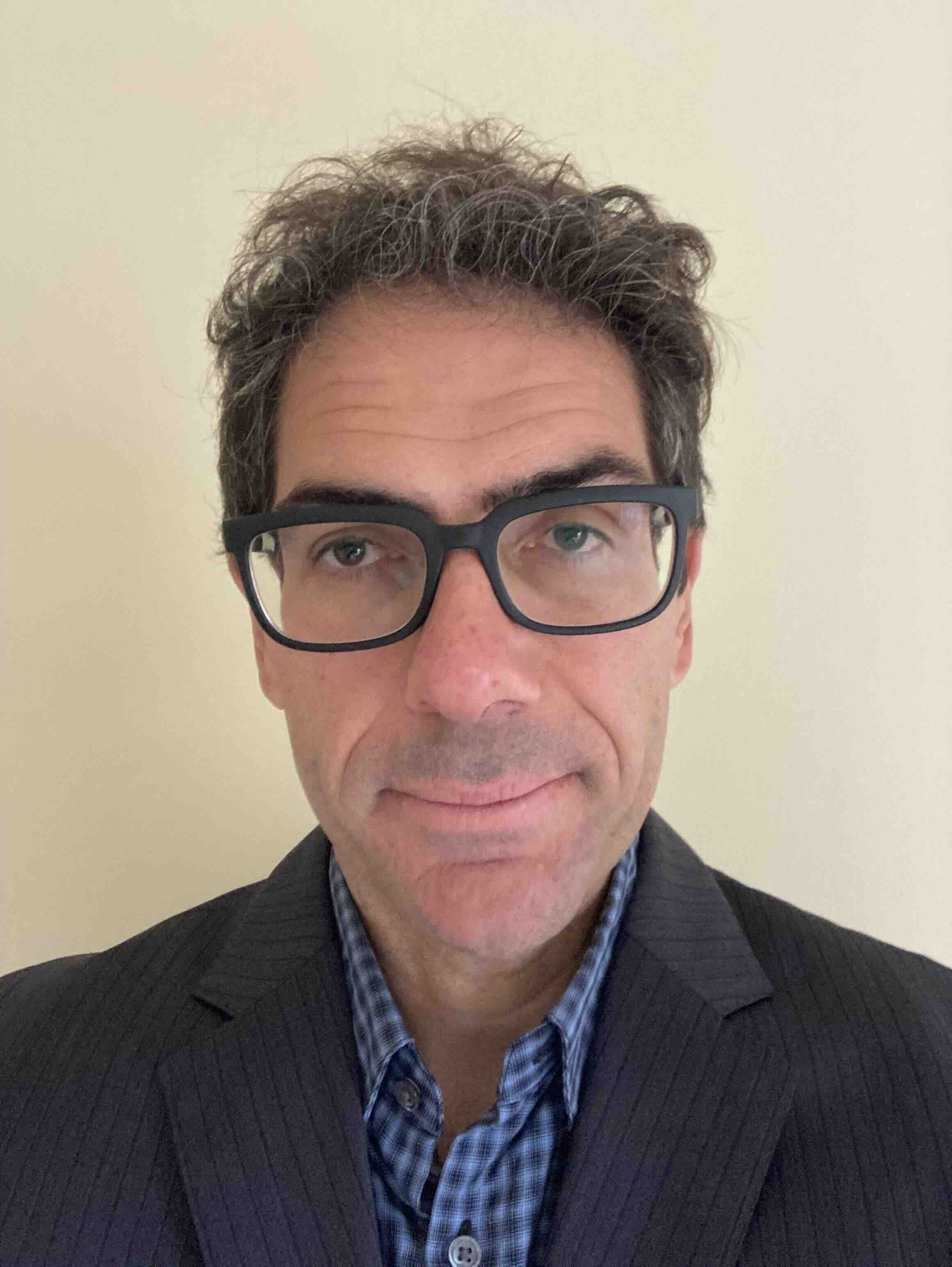 Edgar Illas (Spanish & Portuguese), The Magma of War: An Ontology of the Global (Routledge, 2024), in conversation with Patrick Dove.
Edgar Illas (Spanish & Portuguese), The Magma of War: An Ontology of the Global (Routledge, 2024), in conversation with Patrick Dove.
Friday, December 6, 2024, 4 - 6 pm, Maxwell Hall 222.
The Magma of War: An Ontology of the Global (Routledge, 2024) is a theoretical exploration of war as the ontological force that produces political and social orders. The task responds to a present urgency: the terrifying realization that war has become an uncontainable part of the logic of production of globalization, as we see in Israel/Palestine, Russia/Ukraine, Sudan, or the Mexican narco-wars. Divided into two parts, the book begins by surveying the most important thinkers of war, from Heraclitus to Deleuze and Guattari. The second part explores the geological figure of magma to theorize a possible nomos of global disorder. While in the 1990s Zygmunt Bauman defined globalization as a process of liquification of modern institutions, the changing mixture of air, solid and liquid of magma can help us represent the multidirectional shifts between violence and order as well as the internal contradictions of the immanent ontology of the global world.
Edgar Illas is Professor and director of the Catalan Program in the department of Spanish and Portuguese at IU. His research interests lie in political theory, Marxism, biopolitics, and war studies, and his field of specialization is contemporary Catalan culture. Before The Magma of War, he published The Survival Regime: Global War and the Political (Routledge, 2020) and Thinking Barcelona: Ideologies of a Global City (Liverpool UP, 2012), as well as various articles on theoretical Marxism, politics, and architecture.
Patrick Dove is Professor of Hispanic Studies and author of two monographs on literary reflections on Latin American modernity and its discontents (The Catastrophe of Modernity, 2004; Literature and “Interregnum,” 2016). He is currently completing a book that explores the uneasy relationship between literature and philosophy in the writings of Jorge Luis Borges.
Spring 2025
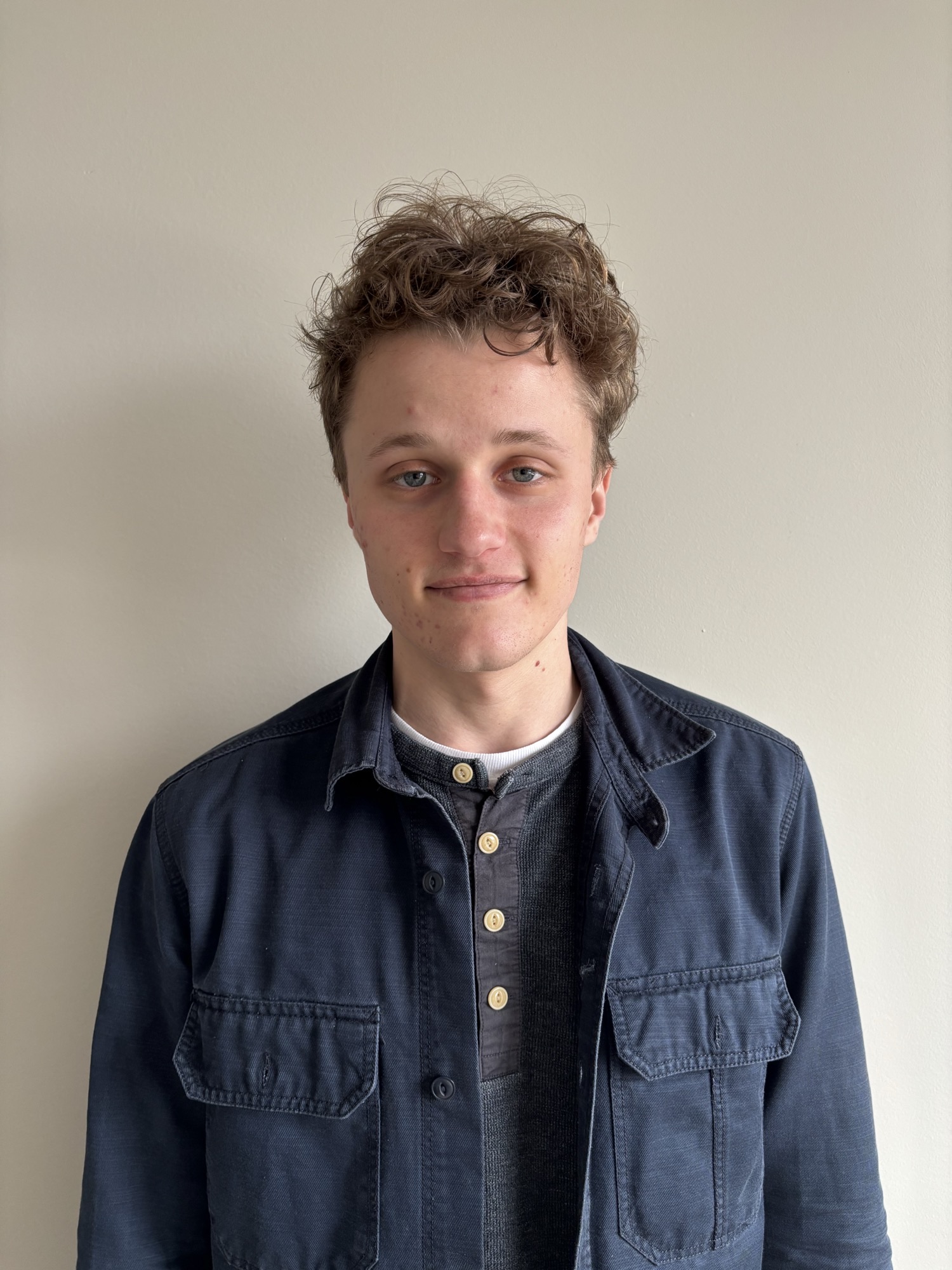 William Slaymaker Graduate Essay Prize
William Slaymaker Graduate Essay Prize
in Critical Theory
David Gould,
“Hand Holding Joystick. On Elfriede Jelinek’s Citation Machines”
Award Ceremony, Presentation of the Prize-Winning Essay, and Reception. Friday, March 28, 4 - 5:30 pm, Maxwell Hall 122
This paper is concerned with a text and a video game, the differences between these media, and their capacity for interacting to capture a historical reality neither can represent by itself. It analyzes an instance of what I call co-fragile media relations, namely the publication of Elfriede Jelinek’s Wolken.Heim. both as text and as literary video game. The paper identifies a hand reaching out of the text, out of German literary history, out of the past as sedimented earth and archive—and into the realm of technical media. Jelinek puts a joystick in the hand reaching out from the grave. This hand pulls the history of technical media—the joystick’s journey from military technology to musical instrument to electronic gaming device and back to war—into an assemblage with literary and political history through acts of citation that are irreducible to the analogue or digital, text or on-screen image.
David Gould is a Ph.D candidate in the Germanic Studies Department. He received bachelor’s degrees in philosophy and Germanic Studies from IU and a M.A. in theology at the Humboldt University in Berlin. David is particularly interested in a variety of media theory that grew out of post-structuralist literary theory in the German-speaking world. His intellectual interests tend to gravitate toward contested meeting points of rhetorical forms and technical media. His dissertation will examine the literary and cultural history of the air, specifically how literature, science, and technical media produce images of the air and in so doing produce new kinds of aesthetic time, new fantasies of power, and new blind spots in knowledge and experience.
"Heidegger and Nihilism": A Symposium
Friday, April 18, 2025, 10 am - 6 pm, Global & International Studies Building, Room1128
Convener: Patrick Dove
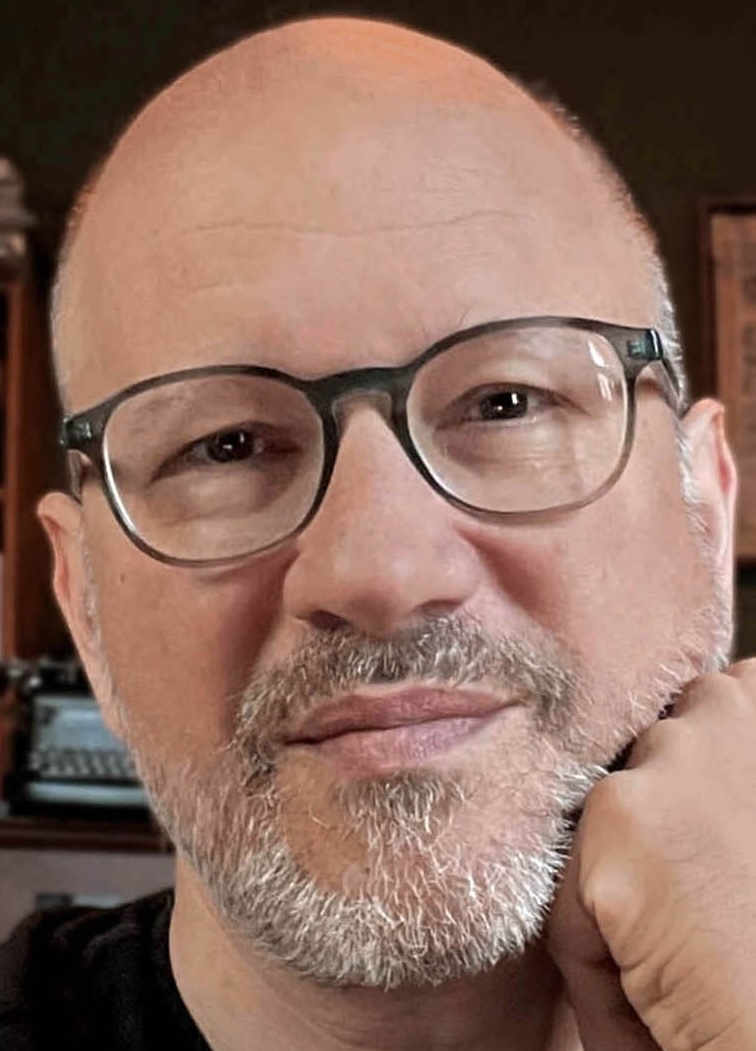 10 AM: Welcome
10 AM: Welcome
10:15 AM: Richard Polt, “Xenikos: Philosophy of and as Nihilism.”
Richard Polt is professor of philosophy at Xavier University. His philosophical interests include time, memory, and technology. He has worked extensively, as an author, editor, and translator, on topics related to Martin Heidegger. His most recent publications are Heidegger on Presence (Cambridge, 2025) and a new edition of Heidegger: An Introduction (Cornell, 2025).
11:15 AM: Coffee break
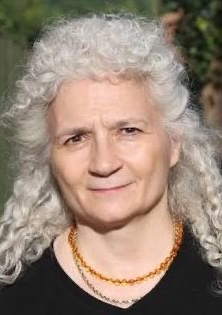 11:30 AM: Babette Babich, “Heidegger’s ‘Gnostic’ Nihilism: Reading Nietzsche, Hölderlin, Anaximander.”
11:30 AM: Babette Babich, “Heidegger’s ‘Gnostic’ Nihilism: Reading Nietzsche, Hölderlin, Anaximander.”
Babette Babich is Professor of Philosophy at Fordham University in New York. Her research foregrounds hermeneutic and phenomenological philosophy of technoscience, particularly via Heidegger, Nietzsche, Feyerabend, philosophy of art, and antiquity. Her recent books include Günther Anders’ Philosophy of Technology: From Phenomenology to Critical Theory (Bloomsbury, 2022), The Hallelujah Effect (Routledge, 2016), and Words in Blood, Like Flowers (SUNY Press, 2006) as well as edited colletions including Reading David Hume’s “Of the Standard of Taste” (de Gruyter, 2019) and Hermeneutic Philosophies of Social Science (de Gruyter, 2017). She also edits the journal New Nietzsche Studies.
12:30 PM: Lunch
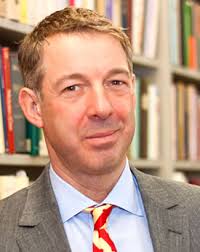 1:45 PM: Laurence Paul Hemming, “Heidegger’s Greek. Is he? How Is Being Greek or German Understood?"
1:45 PM: Laurence Paul Hemming, “Heidegger’s Greek. Is he? How Is Being Greek or German Understood?"
Laurence Paul Hemming is Director of the Knapp Foundation, an academic research trust in the UK. He is an Honorary Professor at Lancaster University in the UK. He previously held senior research positions at the University of London (UK) and KU Leuven (Belgium). Laurence’s published books include: Heidegger’s Atheism (Notre Dame, 2002); Postmodernity’s Transcending (Notre Dame, 2005); Worship as a Revelation (Bloomsbury, 2008); and Heidegger and Marx: A Productive Dialogue over the Language of Humanism (Northwestern, 2013). With Aaron Turner, he is translating a volume of the later Heidegger’s lectures on the Anaximander Fragment (Polity) and editing a collection Heidegger and Parmenides (Bloomsbury). He has written extensively on (mainly German) philosophy, and has edited and published books and articles (and some translations) on topics related to theology, liturgy, politics and classics. He is currently working on a book on the
Greek
understanding of love.
2:45 PM: James Bahoh, "The Position of Fundamental Principles in Heidegger's Account of the Closure of Metaphysics and Opening of Inceptive Thinking."
James Bahoh is Assistant Professor of Philosophy at the University of Memphis. His main research is in phenomenology, post-phenomenological Continental philosophy, and ontology / metaphysics in the context of German and French thought from Kant to the present. He is author of the monograph Heidegger's Ontology of Events (Edinburgh, 2020) and articles in various journals. He is co-editor of a forthcoming volume titled 21st-Century Philosophy of Events: Beyond the Analytic / Continental Divide (Edinburgh, 2025).
3:45 PM: Coffee break
 4 PM: Andrew J. Mitchell, “Nihilism Stands Guard: Heidegger’s Later Thinking of Nihilism.”
4 PM: Andrew J. Mitchell, “Nihilism Stands Guard: Heidegger’s Later Thinking of Nihilism.”
Andrew J. Mitchell is Professor of Philosophy at Emory University. He specializes in 19th and 20th century German thought, especially Romanticism, Nietzsche/Wagner, and Heidegger. He is currently finishing a manuscript titled, Drinking with Heidegger, or, Basic Concepts of Oenology: Markgräfler Gutedel and the Taste of Being.
5 PM: Closing discussion
We gratefully acknolwedge funding from the College Arts & Humanities Institute and the Departments of Philosophy and Germanic Studies.
Catherine Malabou: Seminar and Lecture
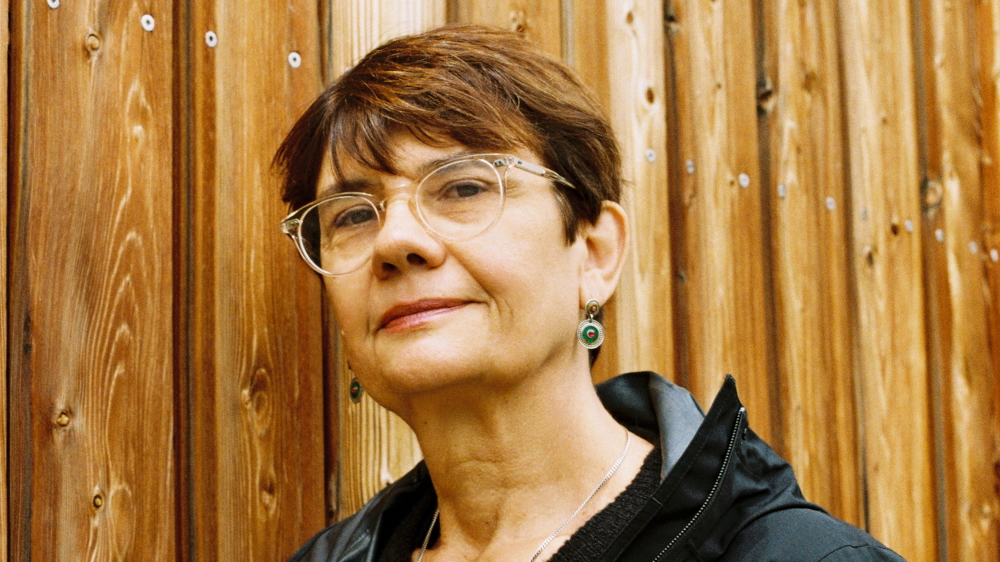
Seminar with Graduate Students
"Metamorphosis and Visibility."
Thursday, May 1, 11 am, Maxwell Hall 122.
Registration required. To register, send an email with your name and departmental affiliation to Carlos Colmenares Gil.
Public Lecture
"Anticipation and Catastrophe."
Thursday, May 1, 4 pm, Maxwell Hall.
Abstract: In this presentation, I will introduce the philosophical movement called “enlightened catastrophism,” or “doomsaying,” advocated by Günther Anders and the French philosopher Jean-Pierre Dupuy. Enlightened catastrophism does not see catastrophes everywhere nor systematically envisages the worst. It is a rational position, hence the adjective “enlightened.” It sees catastrophes not as possible or probable but inescapable and inevitable. It is “a philosophical attitude, a metaphysical challenge to our usual ways of thinking about the world and about time that is based on the peculiar temporality of catastrophes.” It is striking that right-wing libertarians are using this theory today, announcing the inevitability of leaving the planet. How, then, are we to think about the ambiguity of enlightened doomsaying? Is it an argument for radical politics or an ally of anarcho-capitalism?
Catherine Malabou is among the most acclaimed philosophers working today. She is professor of Philosophy and Comparative Literature at UC Irvine, the Otto Mainzer and Ilse Wunsch Mainzer Global Distinguished Professor at New York University, and also Professor at the Centre for Research in Modern European Philosophy (CRMEP) at Kingston University, London. She is known for her work on plasticity, a concept derived from the thought of G.W.F. Hegel and from the neurosciences, which has proved fertile within contemporary economic, political, and social discourses. Her most recent books include Before Tomorrow: Epigenesis and Rationality (Polity Press, 2016); Pleasure Erased: The Clitoris Unthought (Polity Press, 2022), and Stop Thief! Anarchism and Philosophy (Polity Press, 2024), all translated by Carolyn Shread.
We gratefully acknolwedge funding from the Deaprtments of Philosophy, Germanic Studies, and Spanish & Portuguese.
For an archive of events, see here.


